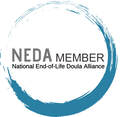|
When it comes to end-of-life options for your body, you are presented with several choices for your funeral arrangements. Traditional methods like burial and cremation remain prevalent, yet there are also lesser-known alternatives worth considering. This marks the first entry in the "Understanding Your Funeral Options" series. Today's article will delve into Water Cremation.
Water cremation, recognized by terms such as alkaline hydrolysis or flameless cremation, constitutes a distinctive approach to cremating remains. It employs a blend of alkaline, water, heat, and pressure to effectuate the cremation process. The outcome encompasses ashes akin to those emanating from conventional cremations and a pH-neutral liquid known as effluent. The ashes are returned to loved ones, while the effluent can be safely disposed of alongside other wastewater. Why might one opt for water cremation? A foremost rationale revolves around the environmental advantages it offers compared to traditional flame-based cremation. In the latter, fossil fuel-derived natural gas fuels the combustion. Emissions stemming from this process, including elevated levels of carbon dioxide—a potent greenhouse gas—are released. The emissions also encompass mercury, sourced from individuals' dental fillings, along with carbon monoxide and nitrogen oxides. This pollutes the surroundings and contributes to air contamination. According to the Cremation Association of North America, a conventional cremation consumes roughly as much energy as a 310-mile car journey and produces approximately 534 pounds of carbon dioxide. In contrast, water cremation demands only a fraction of the energy required by its conventional counterpart. Furthermore, it employs electricity instead of natural gas, thereby eliminating greenhouse gas emissions during the cremation. The liquid byproduct of this process can also serve as an environmentally-friendly fertilizer for gardens or local forests. Notably, water cremation excels at breaking down hazardous substances such as chemotherapy drugs and embalming fluids. A drawback of Water Cremation lies in its unavailability within Michigan. While viable for pets, no funeral homes or crematoriums in the state provide Water Cremation services for humans. Opting for Water Cremation entails transporting the body out of state, thereby incurring additional costs, time, and necessitating advanced planning. Although numerous funeral homes and crematoriums express interest in offering Water Cremation, their decision hinges on the level of demand. Therefore, if you have an interest in this method, start a discussion with your local funeral home.
0 Comments
Your comment will be posted after it is approved.
Leave a Reply. |
AuthorRobin Lehman Archives
April 2024
Categories |
 RSS Feed
RSS Feed


